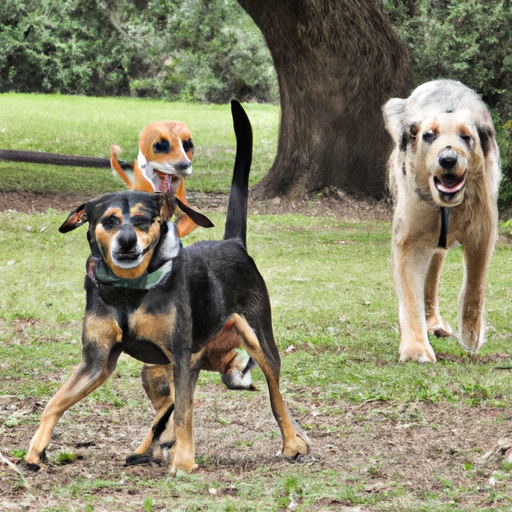Understanding Your Dog’s Fear
Animals, like humans, have fears and uncertainties. Dogs, in particular, can sometimes harbor fears and anxieties that may seem irrational to us. If your dog is scared of other dogs, it’s not a defect or a sign of a “bad” dog. It simply means your pet has some issues that need addressing. This fear may stem from a lack of socialization, past trauma, or even genetic predisposition. Understanding these factors is the first step in helping your dog overcome their fear.
The Role of Socialization
Just as you learned to interact with others during your childhood, dogs also need to learn how to deal with other dogs and people in their puppyhood. If your dog didn’t have many opportunities to interact with other dogs when they were young, they might feel uncertain and scared when encountering other dogs. Here’s how you can help:
- Gradual exposure: Slowly introduce your dog to other dogs. Start from a distance, then gradually get closer as your dog becomes more comfortable.
- Positive reinforcement: Reward your dog when they behave calmly around other dogs. This will help them associate other dogs with positive experiences.
Coping with Past Trauma
If your dog has had a traumatic experience with another dog, they might generalize that fear to all dogs. In these cases, professional help might be needed. Consider consulting a dog behaviorist or a certified dog trainer. They can help your dog unlearn their fear response and replace it with more positive behaviors.
| Approach | Description |
|---|---|
| Behavior Modification | This involves changing your dog’s emotional response to other dogs, turning fear into something positive. |
| Desensitization | This method involves exposing your dog to their fear in a controlled, gradual way to lessen their reaction over time. |
| Counterconditioning | This involves changing your dog’s emotional response to the feared object or situation. |
Genetic Factors
It’s possible that your dog’s fear of other dogs is in their genes. Certain breeds are naturally more cautious or anxious than others. If this is the case, it’s important to be patient with your dog and provide them with plenty of love and support.
Training Tips
Training your dog to overcome their fear will take time and patience, but the payoff is worth it. Here are some tips:
- Use positive reinforcement: Reward your dog for calm behavior around other dogs.
- Avoid punishment: Punishing your dog for their fear will only make it worse.
- Be patient: Progress might be slow, but don’t give up.
FAQs
Q: Can I still take my dog to dog parks?
A: It’s best to avoid dog parks until your dog is more comfortable around other dogs.
Q: Should I pet my dog when they’re scared?
A: While it might be tempting, petting your dog when they’re scared can reinforce the fear. Instead, try to distract them or engage them in a positive activity.
Q: How long will it take for my dog to overcome their fear?
A: This varies from dog to dog. Some might overcome their fear quickly, while others might take a longer time. The key is to be patient and consistent.
Remember, it’s okay to ask for help. If you’re having trouble managing your dog’s fear, don’t hesitate to reach out to a professional dog trainer or behaviorist. They can provide guidance and support, helping you and your dog navigate this challenge together.



